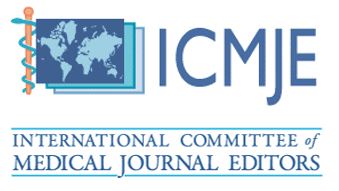Exploration of factors associated with family agreement for organ or tissue donation upon request in potential deceased organ donors in Malaysia from 2001-2023
DOI:
https://doi.org/10.51200/bjms.vi1.5045Keywords:
Tissue and organ procurement, Tissue donors, Transplantation, Family Decision, Organ DonationAbstract
Organ transplantation remains the only definitive modality of treatment for patients suffering from end-stage organ failure. However, without organ donation, transplantation would be impossible. For 20 years, Malaysia remained among the lowest ranking countries in the world in terms of deceased organ donation per million population. Thus this study was conducted to improve deceased donor organ donation in Malaysia by focusing the study objective to explore factors associated with family agreement to donate upon request, in those potential organ donors of 18 years and above that were initially referred to the national transplant team as potential organ donors with devastating brain injury and features suspected of brain death which had a family approach for request for organ or tissue donation. A retrospective cross-sectional study using 22 years of available data since the initiation of the national transplant procurement management database, involving all potential deceased organ donors who fulfil the study criteria between March 2001 until March 2023. Simple logistic regression was performed on all clinically important independent variables and those with significant association towards the outcome with a p-value of < 0.25 was entered into Multiple Logistic Regression to adjust for potential confounders. 1425 potential organ donors were enrolled out of 4447 patients after meeting inclusion criteria. Only 315 (22.1%) families agreed to either organ or tissue donation. In univariate analysis, age, male, eventual death types, organ donor pledger status, types of hospital, race, religion, education level, marital status, personnel making the organ donation request, mechanism of brain injury, family discussion with patient regarding organ donation before admission were the factors that had p-value < 0.25 and after adjusting for confounders via multivariate analysis using multiple logistic regression, it shows that Chinese race, eventually confirmed as brain death, family-initiated organ donation discussion, families that had prior discussion with the deceased about organ donation and the potential donor had pledged as organ donor were all significant factors associated with the outcome. This study showed that awareness and knowledge of organ donation and transplantation of the potential donors’ families were the most important factors as 3 out of 5 significant factors were related to this. All suspected brain deaths need to undergo official clinical brain death testing as this was significantly associated with family agreement upon request. Further research is needed to explore the reason why Chinese families have a higher tendency to agree on organ donation upon request.
Downloads
Published
How to Cite
Issue
Section
License
All articles are published under the Creative Commons Attribution-NonCommercial (CC BY-NC 4.0) license, enabling users to read, download, copy, distribute, and adapt the material for non-commercial purposes, provided proper credit is given to the original authors and the source. This model supports transparency, accessibility, and the global exchange of medical knowledge.








1.png)





